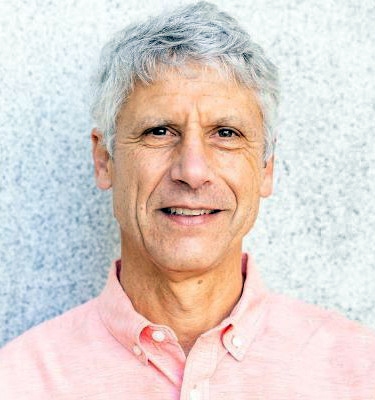A Master of Divinity online program can allow you to dive deeper into biblical scriptures and help you prepare for a vocation in ministry.

In a masters in divinity online program, you have the opportunity to connect with professors who have deep insights into the Bible and practical Christian leadership training.
Editorial Listing ShortCode:
Getting an MDiv is a common requirement for pastoral ministry, and it can also help you qualify for a range of career paths, depending on your chosen specialization.
Master of Divinity Online Programs
If you’re interested in learning more about the Bible, Christian teachings, church history, and church leadership, then you might consider pursuing a Master of Divinity.
Editorial Listing ShortCode:
Program designs and concentrations can vary by school, but Master of Divinity programs generally provide students with foundations in biblical scholarship and Christian doctrine. An MDiv program can also equip you with practical ministry and leadership skills.
Here are examples of course topics you’d likely study:
- Old and New Testament scripture and theology
- Church history
- Christian ethics
- Introductions to biblical languages
- Christian spiritual formation
- Pastoral care and counseling
- Contemporary church administration and leadership
- Christianity and modern culture
A masters in divinity degree can offer the opportunity to discuss theology in the company of other Christians and faith leaders. You’ll also have the chance to dig into biblical interpretation and develop practical counseling and leadership skills.
Common Master of Divinity Specializations
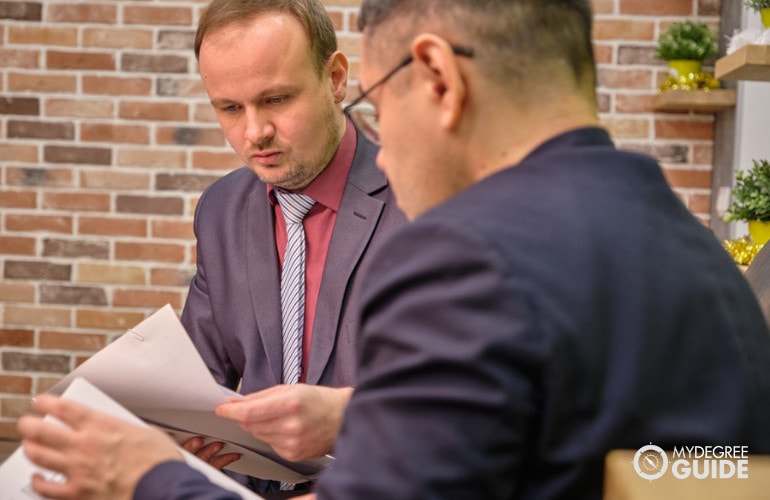
Master of Divinity programs can vary, but here are some common MDiv specializations:
- Biblical Languages and Exegesis. In this specialization, you’ll do more advanced study of one or more biblical languages, and you’ll develop scholarly insights for advanced scriptural study and interpretation. This specialization can give you the kind of scholarly authority that helps you lead church congregations or be an effective teacher.
- Homiletics and Christian Communication. With this specialization, you can learn practical methods for developing Christian homilies and learn how to be effective and more confident in your communication or presentations.
- Youth and Adult Spiritual Formation. This specialization helps prepare you to plan, develop, and implement effective counseling, mentoring, and educational activities that encourage and guide deeper spiritual formation. Since many professional clergy start their careers in youth ministry, this kind of specialization could be a practical one for pursuing long-term careers in church leadership.
- Pastoral Care and Counseling. You can learn practical skills and deepen your spiritual capacity for ministering to those facing life’s challenges. Professionals with this kind of training may work in ministry, in faith-based counseling roles, or in secular counseling roles. Some roles may require licensure or certification.
- Christianity and Culture. The study of intriguing topics in Christianity and culture could help equip you for challenging ministry roles, such as leading highly diverse congregations. This kind of specialization might also help you forge a pathway for future roles in teaching or writing. Some may go into the social work field as well.
Online Master of Divinity degrees can offer specializations that complement different spiritual gifts as well as personal aptitudes and interests.
Divinity Careers & Salaries
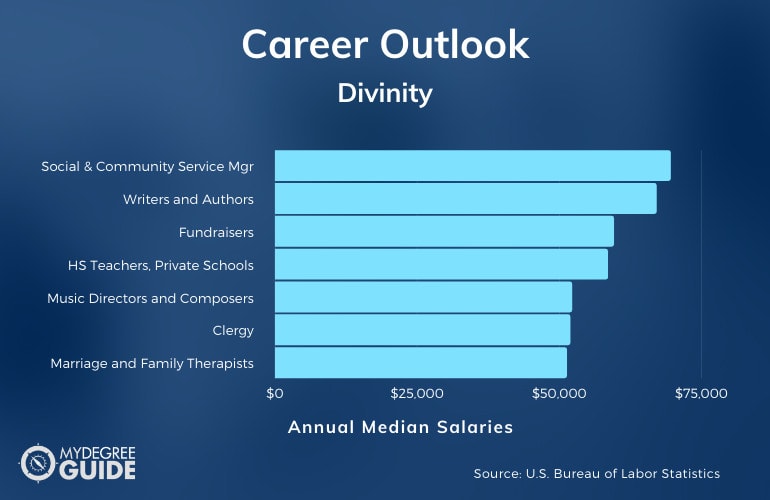
Many professionals in MDiv online programs want to pursue pastoral ordination or more senior roles in ministry or education.
According to the Bureau of Labor Statistics, the following positions can often be found in churches, nonprofits, or Christian organizations.
| Careers | Annual Median Salaries |
| Social and Community Service Managers | $69,600 |
| Writers and Authors | $67,120 |
| Fundraisers | $59,610 |
| High School Teachers, Private Schools | $58,550 |
| Music Directors and Composers | $52,250 |
| Clergy | $51,940 |
| Marriage and Family Therapists | $51,340 |
| Substance Abuse, Behavioral Disorder, and Mental Health Counselors | $47,660 |
| Religious Activities and Education Directors | $45,110 |
| Religious Workers | $33,530 |
Many professionals with MDiv degrees are working as leaders of Christian ministries or as pastors in churches.
Editorial Listing ShortCode:
You might be surprised to discover that professionals with divinity degrees can end up working in secular careers too. The spiritual, ethical, leadership, and relational talents you can develop in an MDiv program can be applicable to a range of careers.
M.Div. Curriculum & Courses

Courses will vary by school, graduate degree program, and specialization. An MDiv curriculum is generally designed to help you develop solid foundations in biblical texts and Christian doctrine while preparing you for leadership in a range of roles.
- Foundations in Biblical History and Culture: This course is an overview of key historical, cultural, and theological principles in the Old Testament and New Testament.
- Old Testament Theology: You’ll study scriptural and historical topics relevant to understanding dominant Old Testament sources and themes.
- New Testament Theology: This course highlights key theological themes and perspectives in New Testament theology, with an emphasis on its ethical perspectives, Jesus, and unique departures from Old Testament theology.
- Interpreting the Gospels: This course involves a comparative study of the gospels, highlighting consistent historical and theological themes and exploring the qualities that lend unique perspectives and insights to each individual gospel account.
- Church History: This course is a survey of key phases of church history, from the patristic period to the 20th century, with explorations of theological, social, and political perspectives.
- Foundations in OT Hebrew and NT Greek: Students study basic grammatical and linguistic features of either OT Hebrew or NT Greek, attempting to parse and translate passages from the Bible.
- Christianity and Culture: This course examines the intersection of Christian and secular beliefs and ethics, and it applies core concepts to contemporary issues and debates.
- Pastoral Exposition: You’ll learn methods to help you expound on scripture and craft effective homilies and pastoral messages.
- Pastoral Counseling: This course draws on both biblical principles and secular methods in counseling and psychology.
- Christian Leadership: This course explores a range of key concepts and principles that inform best practices for leading Christian formation and Christian congregations.
Getting a masters in divinity can provide thorough preparation for ordination and ministry careers, but it can also be an opportunity to get a culturally rich and biblically-centered education.
How to Choose a Master’s in Divinity Online Program

There’s a lot to consider when choosing the right MDiv program for your personal, spiritual, and career interests:
- Curriculum design. Course offerings often have common features from one school to another. Sometimes, though, course offerings reflect unique faculty specializations or distinct denominational orientations and perspectives.
- Study formats. Some programs allow you to complete all classes and requirements remotely, and others may offer hybrid models. In addition, there is often more flexibility with a mostly asynchronous learning design, while synchronous learning schedules are more structured and offer strong cohort networks.
- School type. Some programs are offered at small Christian colleges, and others are affiliated with large universities or offered in seminary settings. It helps to determine what kind of setting will offer you the academic, professional, social, and spiritual orientation you want.
- Capstone projects and residency requirements. Some programs in divinity and theology are oriented more toward scholarly inquiry, while others may emphasize more practical leadership, communication, and administration skills. This can determine whether your program requires a research dissertation, a residency for supervised practice, or another capstone activity.
- Time to completion. Some programs take longer than others. There can be pros and cons when it comes to balancing depth and breadth of study with how long it takes to graduate. You may want to think about your own priorities and whether an accelerated MDiv option is important to you.
Online learning enables you to have more schools to choose from, giving you the opportunity to find the program that best fits your goals and interests. This may be a bachelor’s in Christian ministry degree online or a master of divinity online.
MDiv Admissions Requirements

Here are some common admissions requirements you’ll encounter for accredited masters degree in divinity programs:
- GRE or GMAT scores (only some schools require them)
- Bachelor’s degree
- Satisfactory GPA
- Statement of purpose
- Letters of recommendation
An online masters in divinity program will often involve the study of languages, history, and culture. It will also involve close textual studies of the Bible and require you to learn about practical counseling and leadership skills.
Accreditation
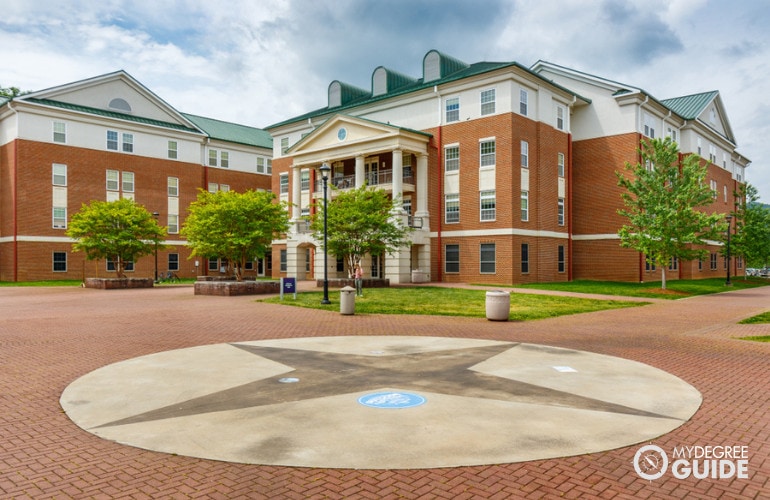
A school that holds regional accreditation has been found to meet a high standard of academic excellence.
Regional accreditation provides the assurance that you’re earning a credible degree. You can also be more confident about the quality of a school’s academic programming, instruction, and support services. Accreditation can be a precondition for certain kinds of financial aid, and it is often required for various kinds of professional licensing too.
Editorial Listing ShortCode:
Organizations like the Council for Higher Education Accreditation (CHEA) can help you learn more about accreditation and finding accredited schools.
Financial Aid and Scholarships

If you’re wanting to enroll in an online Master of Divinity program, you may be unsure about how you’ll cover tuition and other school expenses.
Many professionals seek financial aid and scholarships to move forward and help pay for a graduate degree. Financial aid can include federal and state aid, scholarships, employer-based tuition assistance, and student loans. Terms and conditions can vary, so it’s beneficial to review all financial aid offers carefully.
If you want to see if you qualify for need-based aid, you can fill out the Free Application for Federal Student Aid (FAFSA).
What Is a Master of Divinity?

A Master of Divinity (M.Div.) is a theologically focused graduate degree that helps you advance your knowledge in areas such as biblical interpretation, Christian ethics, and church doctrine and practices. You can also learn practical skills for pastoral ministry and church administration.
In an MDiv program, you can deepen your understanding of fundamental Old Testament and New Testament theological doctrines. You can also study topics related to Christian ethics, Christian counseling, and best practices for Christian formation and effective church administration.
Your acquired leadership skills can be applicable to ministry or any number of secular careers.
What Can You Do with a Masters in Divinity?

An MDiv is the most common degree requirement for aspiring pastors, but it can also lead to a number of alternative ministry opportunities.
Professionals with this kind of degree typically go on to work in a range of Christian ministry or leadership roles. It’s also common for people with this kind of masters degree to work in secular fields too.
MDiv graduates might pursue pastoral leadership roles at Christian churches, which can require ordination steps that will typically vary by church and denomination. Some pastors take on more specialized roles, such as being a lead administrator, youth pastor, or pastoral counselor.
Graduates might also work in local or international missions or in faith-based aid organizations. Others with this degree may work as chaplains, providing spiritual counsel and encouragement to soldiers, hospital patients, law enforcement, or inmates.
Many MDiv professionals also become effective teachers or leaders in educational settings, community-based nonprofits, or in counseling organizations.
How Much Does a Masters in Divinity Cost?

Tuition for different schools and programs varies significantly, but it’s common to pay between $200 to $450 per credit hour. Most programs require 72 credit hours or more.
Some programs also have residency requirements and a thesis or capstone project requirement. It can be beneficial to compare costs, program offerings, and requirements at different schools to try and find a program that satisfies your learning goals and professional interests.
Can You Get a Master of Divinity Online?
Yes, you can earn a Master of Divinity online. Some programs offer fully online learning, and others offer hybrid formats. Some online programs may still have specified residency or field study requirements as well.
When you’re comparing programs, you may find that some theology degrees online offer more flexible asynchronous learning formats. Other programs may have some or all classes happening synchronously, with or without structured student cohorts.
Editorial Listing ShortCode:
Online programs give you lots of options, so you can consider what kind of online study formats best align with the kind of learning experience you want to have.
How Long Does It Take to Get an MDiv Degree Online?

Most masters in divinity programs take about 2 to 3 years to complete, though some may take longer. This is because most programs consist of 72 credit hours or more.
That said, there are some fast-track programs out there designed to help professionals who need to graduate in less time. If you find an accelerated online program and are able to study full-time, year-round, you may able to finish your MDiv in less time.
What’s the Difference Between a Master of Divinity vs. Master of Theology Degree?
A Master of Divinity is the most common degree for those wanting to pursue church leadership roles, but you’ll find similar topics of study in both degree programs.
| Master of Divinity | Master of Theology |
|
|
Theology degree programs may be better suited to those who have a more academic interest and plan to pursue careers in education. Divinity programs typically help prepare people for future ministry in a local church or organization.
What’s the Difference Between Going to a Divinity School vs. Seminary?
Divinity schools are typically housed at larger colleges and universities that support other kinds of academic majors and degree programs. In contrast, seminaries only offer courses in religion.
| Divinity School | Seminary |
|
|
A divinity school program may offer students broader academic curriculum and perspectives. On the other hand, seminary programs may be more narrowly focused on training that aligns with the seminary’s denominational affiliation.
Is a Masters in Divinity Worth It?

Yes, a masters in divinity is worth it for many students. Most divinity masters degrees are carefully designed to help you prepare leadership roles in faith-based programs and organizations. You can also choose a specialization that best relates to your career goals.
The Bureau of Labor Statistics projects 4% job growth for clergy over the next ten years. Some MDiv graduates go on to pursue a doctorate in divinity, philosophy, comparative religion, or theology. Others work as marriage and family therapists, educators, or community service organization leaders.
Because it’s an honorary degree, it’s not usually an option to pursue a Doctor of Divinity degree online or even on campus. However, there are many related doctorates in ministry and theology offered by a growing number of universities.
Editorial Listing ShortCode:
The Bureau of Labor statistics projects above average job growth over the next ten years for marriage and family therapists (22% job growth) and social and community service managers (17%). Meanwhile, clergy positions are expected to grow at a steady 4%.
Universities Offering Online Masters in Divinity Degree Programs
Methodology: The following school list is in alphabetical order. To be included, a college or university must be regionally accredited and offer degree programs online or in a hybrid format.

Abilene Christian University offers a Master of Divinity. To graduate, students must complete 72 credit hours. To be eligible for the program, applicants must have a GPA of 3.0. They must submit official transcripts from all schools attended, 2 letters of recommendation, an academic writing assessment, and a reflective essay.
Abilene Christian University is accredited by the Southern Association of Colleges and Schools Commission on Colleges.
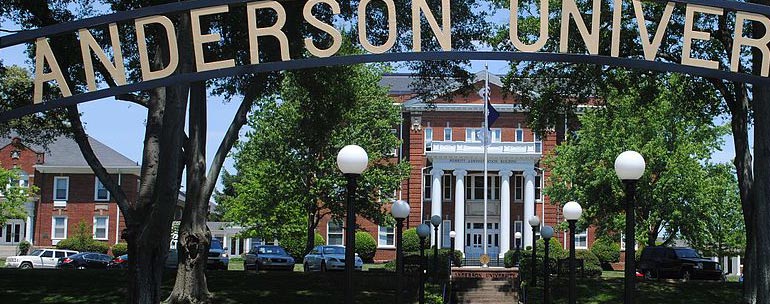
Anderson University offers a Master of Divinity. Students may choose to add a concentration in Youth Ministry. The program typically takes 3 years to complete, and students have the option to take 15 week or 7 week long classes. Applicants must have a GPA of 2.5 or higher and submit 3 letters of recommendation and a statement of faith.
Anderson University is accredited by the Commission on Colleges of the Southern Association of Colleges and Schools.
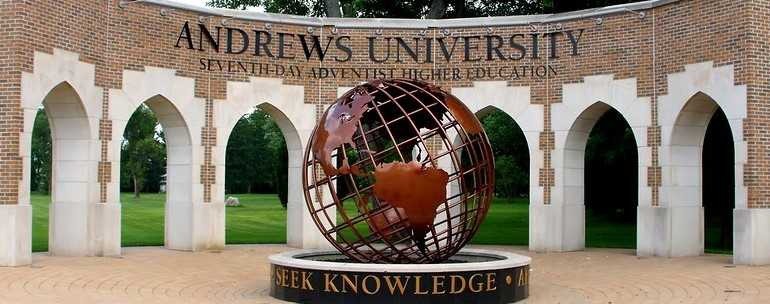
Andrews University offers a Master’s in Divinity program that can be completed online. To graduate, students must complete 78 credit hours. Those interested in the program may apply online at any time during the year. Applicants must submit official transcripts, a statement of purpose, test scores, and a current resume.
Andrews University is accredited by the Higher Learning Commission.
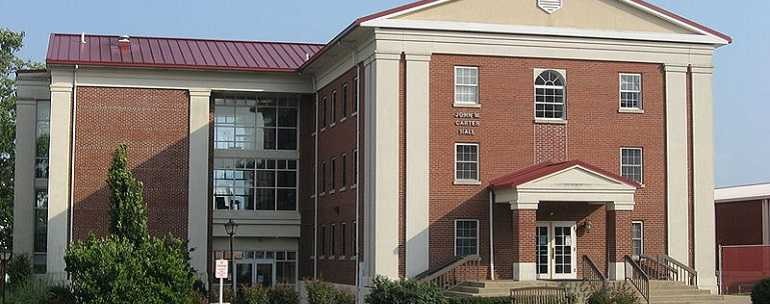
Campbellsville University offers a Master of Divinity. Students may choose to complete a concentration in Missions and Ministry Leadership, Biblical Studies, or Pastoral Care and Chaplaincy. Applicants must have a bachelor’s degree with a GPA of 3.0 and submit 2 letters of recommendation, GRE or MAT scores, and a philosophy of ministry essay.
Campbellsville University is accredited by the Southern Association of Colleges and Schools Commission on Colleges.

Corban University offers a Master of Divinity with the option to add one of two concentrations to their degree: Church Ministry or Biblical Languages. To graduate, students must complete 86 credit hours. Applicants must submit an application essay, official transcripts, 3 letters of recommendation, and a resume.
Corban University is accredited by the Northwest Commission on Colleges and Universities.

Dallas Theological Seminary offers a Master of Divinity. The program offers the following concentrations: Apologetics, Urban Studies, Women’s Ministry, or Jesus Studies. Applicants must submit official transcripts, references, and proof of their Christian faith and that they are endowed with appropriate spiritual gifts.
Dallas Theological Seminary is accredited by the Southern Association of Colleges and Schools Commission on Colleges.

Eastern University offers a Master of Divinity. The program requires the completion of 78 credit hours to graduate and can usually be completed in 3 years. Those interested in the program may apply online through the school’s website with a personal statement and official transcripts from all schools attended.
Eastern University is accredited by the Middle States Commission on Higher Education.

Evangel University offers a Master of Divinity with the option to add the following concentrations: Expository Preaching, Islamic Studies, or Military and Institutional Chaplaincy.
The program requires 78 credit hours to graduate and can typically be completed in 3 years. Applicants must submit official transcripts, a ministerial reference, an academic reference, an autobiography, and an interview.
Evangel University is accredited by the Higher Learning Commission.

Grand Canyon University offers a Master of Divinity. To graduate, students must complete 82 credit hours. The online classes are 8 weeks long. Students may transfer up to 12 qualifying credits to the program. Those interested in the program may apply through the school’s website. Official transcripts must be submitted when applying.
Grand Canyon University is accredited by the Higher Learning Commission.
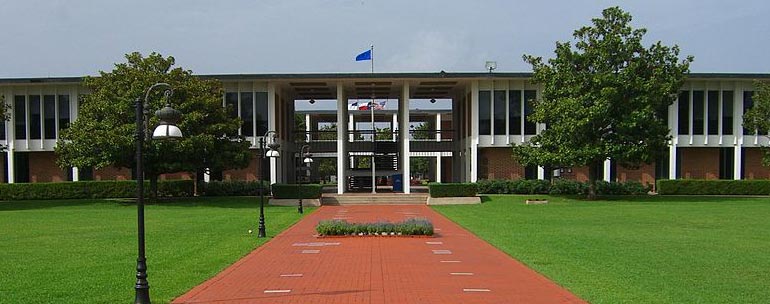
Houston Baptist University offers an online program for a Master of Divinity. The program offers two concentrations: Biblical Languages or English Language. Both programs require students to complete 72 credit hours to graduate. Applicants must submit official transcripts, a personal statement, and a resume.
Houston Baptist University is accredited by the Southern Association of Colleges and Schools Commission on Colleges.
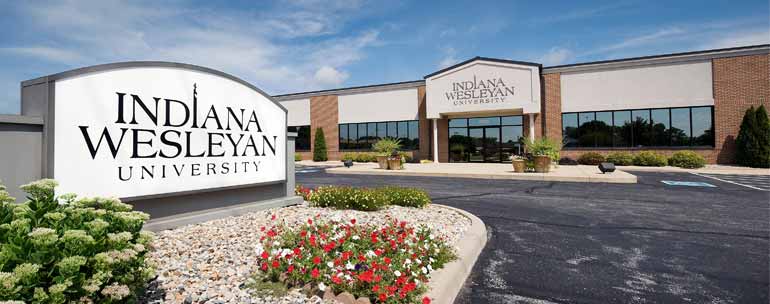
Indiana Wesleyan University offers an online program for a Master of Divinity. To graduate, students must complete 75 credit hours.
The program offers concentrations in Biblical Studies, Christian Theology, Church History and Wesley Studies, and Children, Youth, and Family Ministry. Other options include Preaching, Leadership, Pastoral Care, Spiritual Formation, and Worship Arts. Those interested in the program may apply online through the school’s website.
Indiana Wesleyan University is accredited by the Higher Learning Commission.

Liberty University offers a Master of Divinity. The program requires the completion of 75 credit hours and can typically be completed in 2 years.
Students may add a specialization in Biblical Studies, Biblical Languages, Apologetics, Christian Leadership, Church Ministries, Church History, Homiletics, and much more. Applicants must have an undergraduate GPA of 2.0 or higher.
Liberty University is accredited by the Southern Association of Colleges and Schools Commission on Colleges.
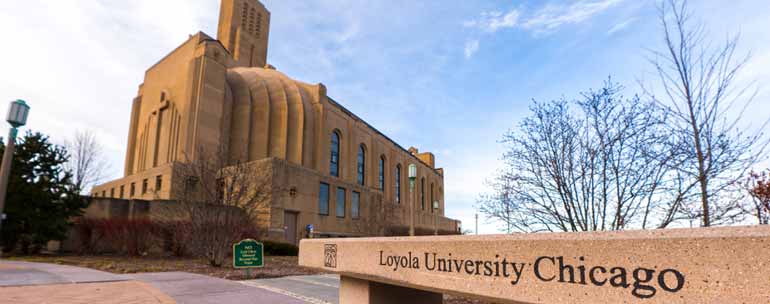
Loyola University—Chicago offers a Master of Divinity. The program can be completed online except for a course in Liturgical Leadership. Full-time students are typically able to graduate within 4 years. Applicants must submit an online application form and have official transcripts and 2 letters of recommendation when applying.
Loyola University – Chicago is accredited by the Higher Learning Commission.

Moody Bible Institute offers a Master of Divinity. The online program offers the following emphasis options: Pastoral Studies and Interdisciplinary Studies. Both programs require students to complete 87 credit hours to graduate. Applicants must submit an online application, two references, official transcripts, and an autobiographical essay.
Moody Bible Institute is accredited by the Higher Learning Commission.
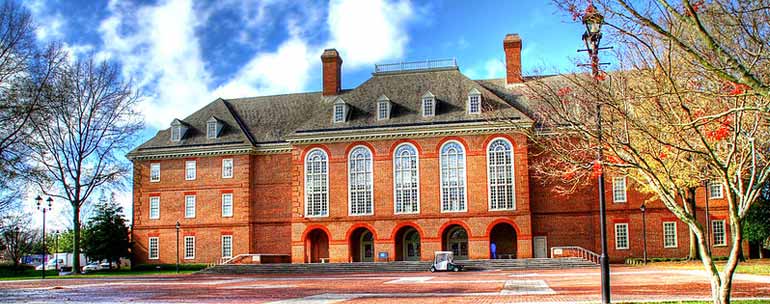
Regent University offers a Master of Divinity. The program offers concentrations in Biblical Languages, Chaplain Ministry, Christian Discipleship, Christian Theology, Church History, Church Planting, Missiology, and more. Applicants must submit an online application, an admission questionnaire, unofficial college transcripts, and government-issued ID.
Regent University is accredited by the Southern Association of Colleges and Schools Commission on Colleges.
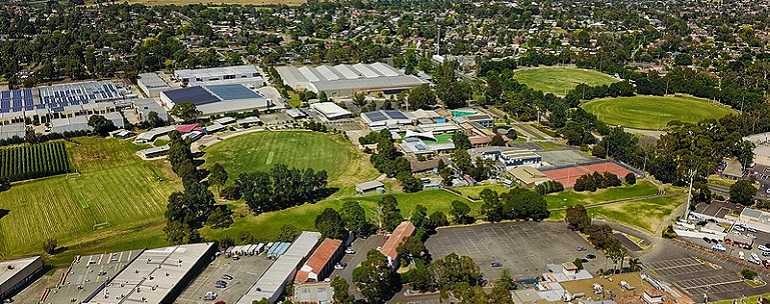
Saint Joseph’s College of Maine offers a Master of Divinity. The program is designed for those interested in receiving a Doctorate in Divinity. Students may choose to complete the accelerated track in Theology or Ministry. To be eligible for the program, applicants must have a GPA of 3.0 or higher, a letter from their pastor, and a personal essay.
Saint Joseph’s College is accredited by the New England Commission on Higher Education, Inc.
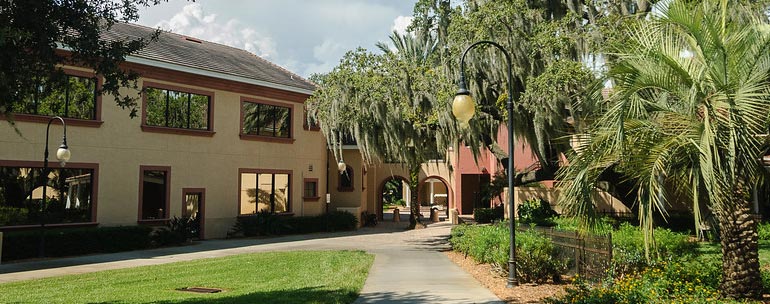
Southeastern University offers a Master of Divinity. To graduate, students must complete 72 credit hours, including a supervised ministry experience. Those interested in the program may apply online with official college transcripts, a statement of purpose, a Christian character reference, and either a professional or academic reference.
Southeastern University is accredited by the Southern Association of Colleges and Schools Commission on Colleges.

The Southern Baptist Theological Seminary offers an online program for a Master of Divinity.
It offers concentrations in Christian Ministry, Great Commissions Studies, Biblical Counseling, Apologetics, Biblical and Theological Studies, Islamic Studies, and Worship Leadership. Applicants must submit their application with a pastoral recommendation and official transcripts.
The Southern Baptist Theological Seminary is accredited by the Southern Association of Colleges and Schools Commission on Colleges.

Trinity International University offers a Master of Divinity. Students must choose between two tracks: Church and Parachurch Ministry or Academic Ministry. To graduate, students must complete 87 credit hours and an internship. Applicants must have a minimum GPA of 2.5 or GRE test scores.
Trinity International University is accredited by the Higher Learning Commission.

Western Seminary offers a Master of Divinity. Students can add a specialization in Biblical and Theological Studies, Chaplaincy, Coaching, Exegetical Studies, Pastoral Studies, or Women’s Transformational Leadership. Students must complete 82 credits to graduate. Applicants must have a bachelor’s GPA of 2.5 or higher to be eligible.
Western Seminary is accredited by the Northwest Commission on Colleges and Universities.
Getting Your Master of Divinity Degree Online

Online degree programs are known for their convenience and flexibility. Getting a Master of Divinity online can be a strategic way to study the Bible alongside other believers while earning advanced qualifications for the field of ministry.
While earning an MDiv from an accredited school is a common pastoral requirement, it can also qualify you for a range of careers, depending on your chosen specialization.
Why not start exploring online MDiv programs today?

